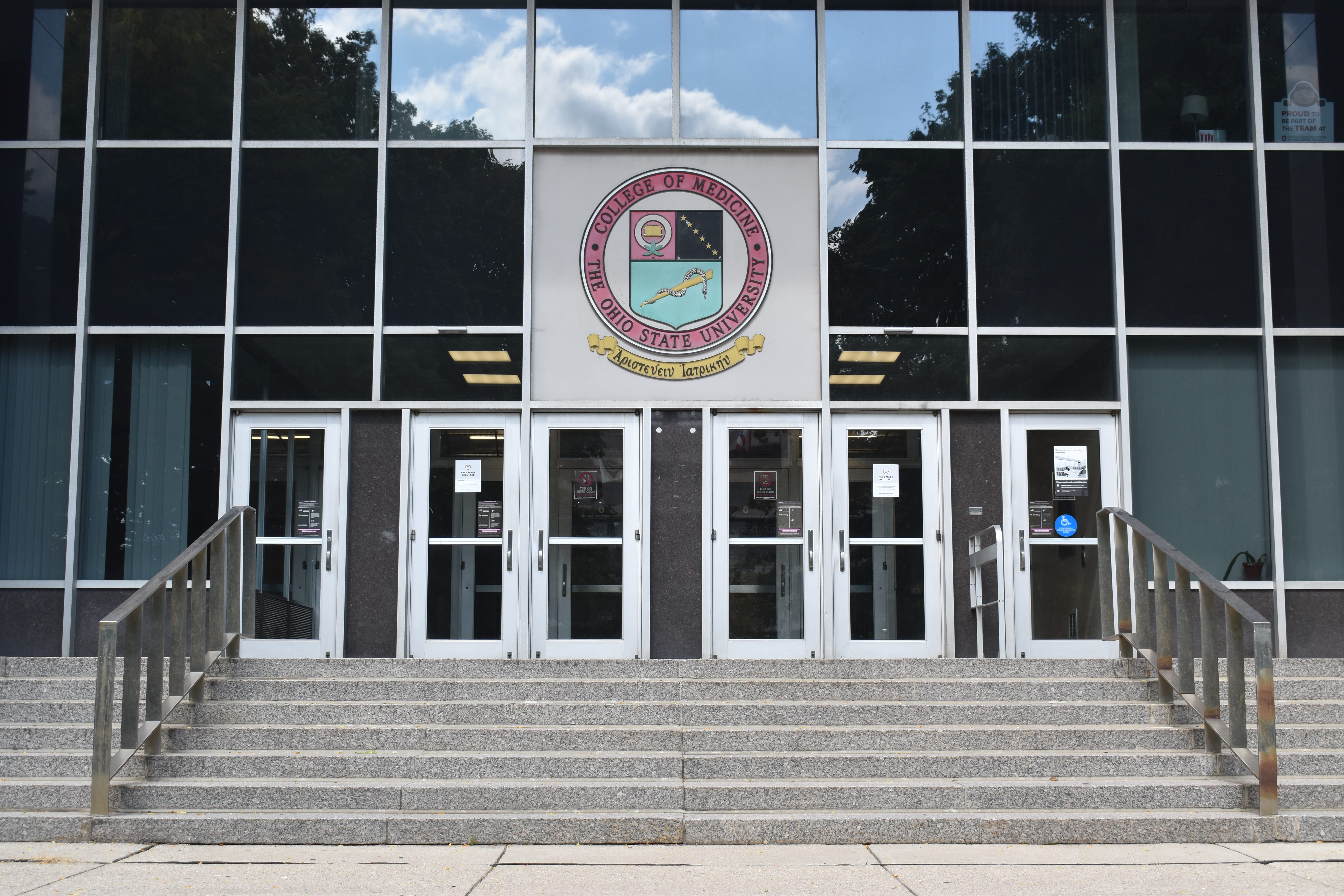
Soon-to-be graduates originally planning to transition straight into graduate or professional school may consider taking a year off due to the uncertainty surrounding COVID-19. Credit: Mackenzie Shanklin | Photo Editor
This story was originally published Sept. 28, 2020.
The already difficult decision of enrolling in graduate or professional school after completing an undergraduate degree is only made harder in the face of the ongoing pandemic.
Upcoming graduates originally planning to transition straight into graduate or professional school may consider taking a year off, whether to work, study abroad or simply take a break before returning to school, due to the uncertainty surrounding COVID-19.
Julie Brim, director of admissions at the Ohio State College of Medicine, said she encourages students not to be afraid of taking a gap year before medical school and that it won’t hurt a student’s admissions chances.
“Take a good, long look at your application. And if you think you’ll benefit from having some extra time, then absolutely, there’s nothing wrong with it,” Brim said.
Brim said even before COVID-19, taking a gap year was not all that uncommon; only about 60 percent of applicants immediately go to medical school after undergraduate school. She said medical schools like to see students pursue health-related activities such as volunteering or research during a gap year.
“We like to see them continuing to pursue those activities that are important to have in your med school application,” Brim said.
Brim said whenever a student does decide to apply, the medical school will take the circumstances of COVID-19 into account. She said she understands that some health-related opportunities, such as volunteering, are still unavailable due to the pandemic.
“We’re looking for quality, not quantity,” Brim said. “We’ve just tried to remain really flexible.”
In order to enter medical school immediately after graduation without taking a gap year, students need to apply after their third year as undergraduates.
Aarshvi Bhatt, a third-year in health sciences, decided to take a gap year before going to medical school. She said she still needs additional research and volunteer hours to apply, which she couldn’t complete during summer 2020 like she originally planned due to COVID-19.
Bhatt said the continued uncertainty around the pandemic made her unsure when she would be able to get back into a research lab or secure a volunteer position. Taking a gap year puts less pressure on her to get all the requirements done in time to apply to medical school in the spring, she said.
“Even if I applied at the end of this year, there’s still so much unsure,” Bhatt said.
For students applying to different kinds of post-undergraduate schools, the impact a gap year will have on students’ chances is similarly low.
Bryanna Stigger, outreach program coordinator for the College of Social Work, said taking a gap year due to COVID-19 will not hurt a student’s admissions chances into the master’s program later on. She said historically, even before the pandemic, many students choose to take a break between undergraduate and graduate school.
“It’s really about evaluating your personal preferences and your goals,” Stigger said.
If students are looking to pursue graduate school immediately after graduation, Stigger said the College of Social Work allows them to choose between in-person and virtual instruction. Even the field-placement component of the curriculum can be offered in a virtual format.
“Our program has already been an established online program, so it has been kind of attractive for lots of folks specifically in COVID,” Stigger said.
Stigger said ultimately, the College of Social Work wants students to prioritize their health and wellness in whichever decision they make regarding graduate school, even if that means taking some time off before enrolling.
“That gives people time to rest and relax, rejuvenate after completing an undergraduate degree,” Stigger said.


